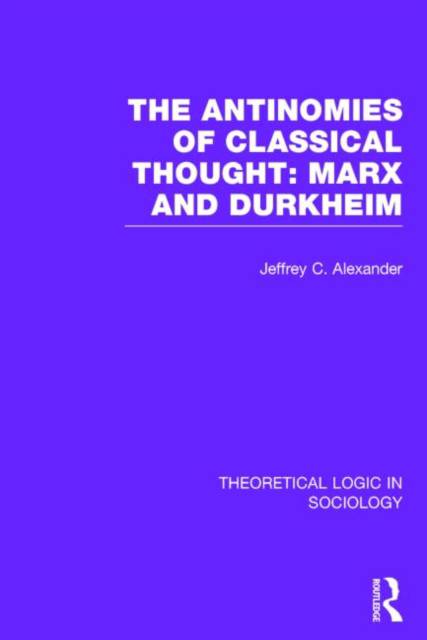
- Retrait gratuit dans votre magasin Club
- 7.000.000 titres dans notre catalogue
- Payer en toute sécurité
- Toujours un magasin près de chez vous
- Retrait gratuit dans votre magasin Club
- 7.000.000 titres dans notre catalogue
- Payer en toute sécurité
- Toujours un magasin près de chez vous
The Antinomies of Classical Thought
Marx and Durkheim (Theoretical Logic in Sociology)
Jeffrey C AlexanderDescription
This volume challenges prevailing understanding of the two great founders of sociological thought. In a detailed and systematic way the author demonstrates how Marx and Durkheim gradually developed the fundamental frameworks for sociological materialism and idealism. While most recent interpreters of Marx have placed alienation and subjectivity at the centre of his work, Professor Alexander suggests that it was the later Marx's very emphasis on alienation that allowed him to avoid conceptualizing subjectivity altogether. In Durkheim's case, by contrast, the author argues that such objectivist theorizing informed the early work alone, and he demonstrates that in his later writings Durkheim elaborated an idealist theory that used religious life as an analytical model for studying the institutions of secular society.
Spécifications
Parties prenantes
- Auteur(s) :
- Editeur:
Contenu
- Nombre de pages :
- 588
- Langue:
- Anglais
- Collection :
Caractéristiques
- EAN:
- 9780415724227
- Date de parution :
- 28-01-14
- Format:
- Livre relié
- Format numérique:
- Genaaid
- Dimensions :
- 163 mm x 236 mm
- Poids :
- 521 g







